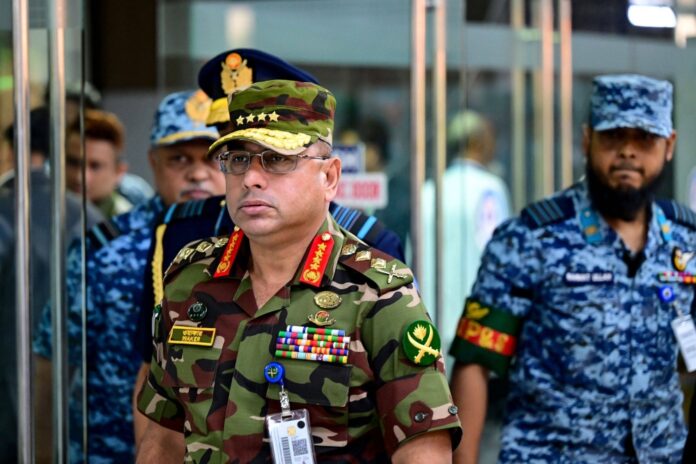
A major diplomatic mission unfolded today as a seven-member team of American officials, led by Major General Scott A. Winter from the US Army Pacific Command (USARPAC), arrived in Dhaka, Bangladesh. This visit comes shortly after another high-level US team comprising officials from the State, Defence, and Treasury departments engaged with Bangladeshi authorities.
Leadership and Objectives
Major General Scott A. Winter, the Deputy Commanding General for Strategy Plans at USARPAC based in Fort Shafter, Hawaii, is at the forefront of this diplomatic endeavor. USARPAC serves as America’s “theatre army for the Indo-Pacific,” highlighting the strategic importance of Bangladesh in regional security. Prior to his current role, Maj Gen Winter commanded the 1st (Australian) Division, where he oversaw the Australian Army’s overseas operations, including participation in multiple multinational military exercises.
Accompanying him on this mission are several notable officials, including Russell Gibson, Director of US Government and Legislative Affairs, as well as Jared William Carpenter, Michael Reid Sattem, Sara Jeanette Albertson, Joshua Hamilton Geiger, and Darren Allen Thurman. The team is expected to address various matters of mutual interest and strengthen bilateral relations between the United States and Bangladesh.
Context of the Visit
The timing of Major General Winter’s visit is particularly significant, occurring just days after the Chief of Army Staff of Bangladesh, General Waker-uz-Zaman, completed an 11-day trip to the United States and Canada. General Zaman met with high-ranking officials from the Pentagon and State Department, discussing critical issues including UN peacekeeping missions and military cooperation.
The backdrop of these diplomatic engagements is a period of political unrest in Bangladesh, particularly following the recent political upheaval that led to the ousting of Sheikh Hasina’s regime. Analysts in Dhaka view the current interactions between the US and Bangladeshi military officials as crucial for stability and governance in the region.
Implications for Bangladesh
The arrival of the US delegation may have far-reaching implications for Bangladesh, especially regarding its military and political landscape. The Bangladeshi military has been navigating a complex political environment since General Zaman’s appointment. Amid ongoing tensions with the interim regime led by Mohammad Yunus, the military’s ability to maintain balance and stability is being tested.
A recent attempt by a faction of students who played a pivotal role in the movement against Hasina’s administration to besiege Banga Bhaban, the presidential residence, indicates the continued volatility of the political situation. However, the protest movement appears to be losing momentum, with dwindling participation reflecting a potential shift in public sentiment.
Focus Areas for the US Team
The discussions held during this visit are anticipated to cover a variety of pressing topics, including:
- Bilateral Military Cooperation: Strengthening ties between the US military and the Bangladesh Armed Forces, fostering collaborative training and operational capabilities.
- Regional Security Concerns: Addressing issues related to regional stability, counter-terrorism, and responses to illegal migration that may affect both nations.
- UN Peacekeeping Missions: Exploring opportunities for Bangladesh’s increased participation in UN peacekeeping operations, enhancing the country’s international profile.
- Capacity Building: Discussing strategies for developing the capabilities of the Bangladeshi military in alignment with global standards.
The arrival of the seven-member US team led by Major General Scott A. Winter represents a renewed focus on US-Bangladesh relations amid complex political and security challenges. As both nations seek to strengthen their partnership, the outcomes of this visit could play a crucial role in shaping the future dynamics of the Indo-Pacific region.
With an agenda that includes military cooperation, regional stability, and peacekeeping efforts, this diplomatic mission underscores the importance of Bangladesh in the broader strategic framework of US interests in Asia. As the team stays in Dhaka until November 1, the developments from this visit will be closely monitored by analysts and stakeholders in both countries.



